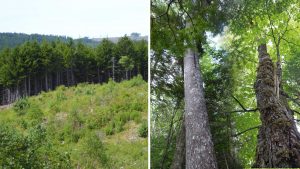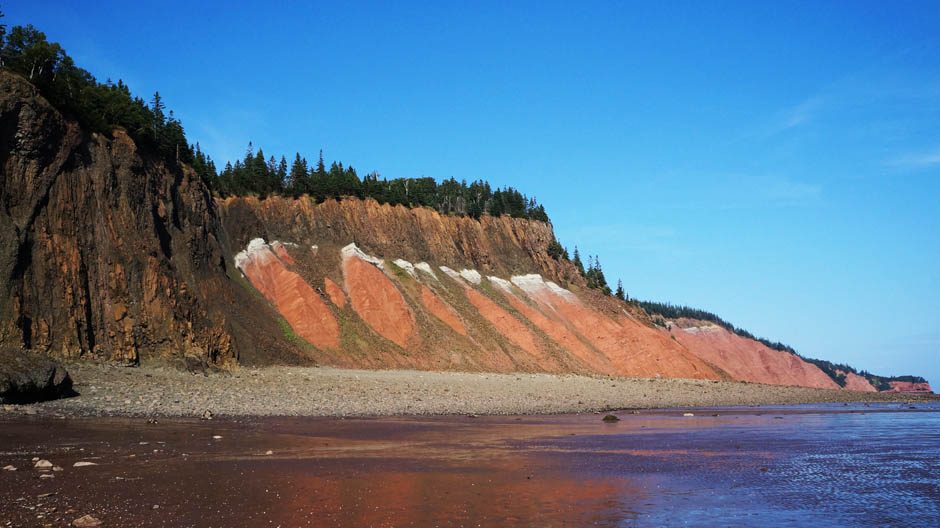
Choices: two approaches to forest management in Nova Scotia; one could benefit financially from carbon offsets AND conserve biodiversity, one would not
Atlantic Canada’s woodlot owners could benefit from the growing tendency of jurisdictions to require businesses to offset their carbon emissions, said Daimen Hardie, executive director and a co-founder of Sackville, N.B.-based Community Forests International.
Atlantic Canada has between 70,000 to 80,000 family woodlot owners who are ideally placed to form carbon offsetting partnerships with polluting companies, said Hardie.
He said carbon offset initiatives are being led by California, where companies that emit excessive carbon must pay a penalty or invest in projects that draw carbon from the atmosphere.
Read more in ENTREVESTOR: Initiatives could benefit local woodlot owners
by Carol Moreira, Chronicle Herald Feb 8 (Feb 9 print ed)
Hardie said that “in order to access the regulated carbon markets, Atlantic Canada would need to sign up to the standards outlined in the Western Climate Initiative (WCI)”.
So the big question is whether the governments in N.B. and N.S., which have a history of supporting Industrial Forestry/clearcutting in a myriad of ways would take the steps necessary to enable private woodlot owners to benefit from carbon offsets.
Clearcutting would NOT be compatible with carbon offsets; as Dale Prest says “we can cut every single tree we have, just not all at once.”
In Nova Scotia, Dale Prest has made the Liberal government well aware of these opportunities – view
Carbon pricing: Making it happen for Nova Scotia woodland owners
Dale Prest NSWOOA Newsletter Nov 2017Dale Prest: Open Up NS Cap & Trade to accommodate forest carbon capture (post, Nov 23, 2017).
Cap and Trade could provide major incentive NOT to clearcut (post, Nov 18, 2017)
But Nova Scotia has chosen a Nova Scotia-only Cap & Trade system.
Clearly, enabling private woodlot owners to benefit from carbon offsets would run counter to Industrial Forestry practices, but could benefit private woodlot owners and forests and wildlife and Nova Scotians – and the Planet.
Isn’t it time, Bill Black, and Independent Review, to chart a different path and require Industrial Forestry to adapt?
